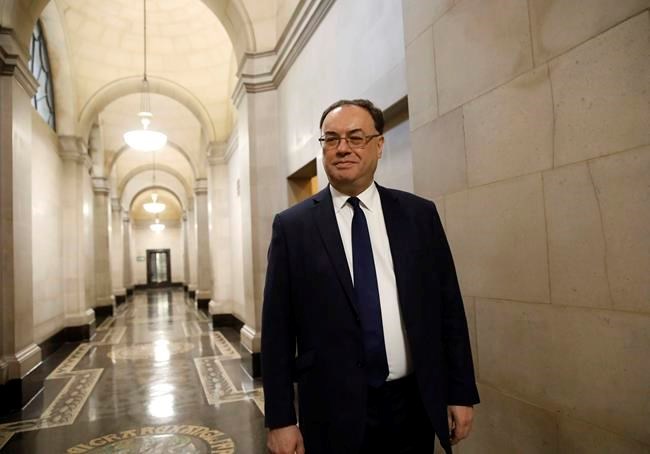LONDON — The Bank of England slashed its main interest rate to 0.1%, the lowest level since its founding in 1694, and reactivated a bond-buying stimulus program to cushion against the economic shock of the coronavirus pandemic.
The bank's nine-member Monetary Policy Committee said in a statement Thursday that the moves were designed “to meet the needs of U.K. businesses and households in dealing with the associated economic disruption.”
The interest rate cut comes just about a week after the central bank cut its rate from 0.75% to 0.25% at another emergency meeting.
The bank's new governor, Andrew Bailey, told reporters that further actions were necessary in light of the fact that financial market conditions over the past week were if “not disorderly, bordering on disorderly,” especially after
The fresh moves were also necessary, he said, given “the increase in the pace and severity of impact" of the outbreak.
“The public demands fast action and they’ll get it from us,” he said. “We can’t wait for the hard economic data before we act.”
He said it would be “foolhardy to take anything off the table”in the weeks to come though he voiced his philosophical opposition to negative interest rates.
Over the past week, investors sold off U.K. financial assets sharply, and not just stocks. The pound has taken a battering and is now around $1.16, its lowest since 1985. Following the bank's measures Thursday, the FTSE 100 stock index closed up 1.4% while the pound stabilized.
On top of the rate cut, the bank said it was relaunching its monetary stimulus program that it had first used during the global financial crisis over a decade ago. It will buy an extra 200 billion pounds ($230 billion) in government and corporate bonds. There is no schedule for the purchases, Bailey said, giving the bank maximum flexibility.
The program pumps new money into the economy to help it cope with the huge disruption of the coronavirus outbreak, which has seen the government impose increasingly stringent restrictions on economic activity.
“The spread of COVID-19 and the measures being taken to contain the virus will result in an economic shock that could be sharp and large, but should be temporary,” the bank's policy committee said in a statement.
The decision to relaunch its bond-buying program comes less than a day after the European Central Bank ramped up its own such program in the hope of keeping a lid on the borrowing rates of the 19 countries that use the euro, particularly of highly indebted Italy and Greece.
Bailey, who only replaced Mark Carney as governor at the start of this week, said he was in close contact with other central bank governors daily about the crisis.
Many economists think the outbreak will cause an economic slump of a depth unseen since the 1930s.
“It is now clear that the prolonged impact of a shut-down to the economy, coupled with the large fall in demand and related uncertainty, will most likely lead to a severe downturn unless we see more drastic and decisive policy actions," said Dr Ivan Petrella, associate professor of economics at Warwick Business School.
The government, which has already announced a 350 billion-pound package of mainly loans to businesses and expanded sick-pay provision, is expected to announce more measures to support the economy, notably to shore up the income of workers.
“This is most likely the area where the government will have to intervene in the coming weeks if it aims to prevent a wave of lay-offs,” said Petrella.
Pan Pylas, The Associated Press

